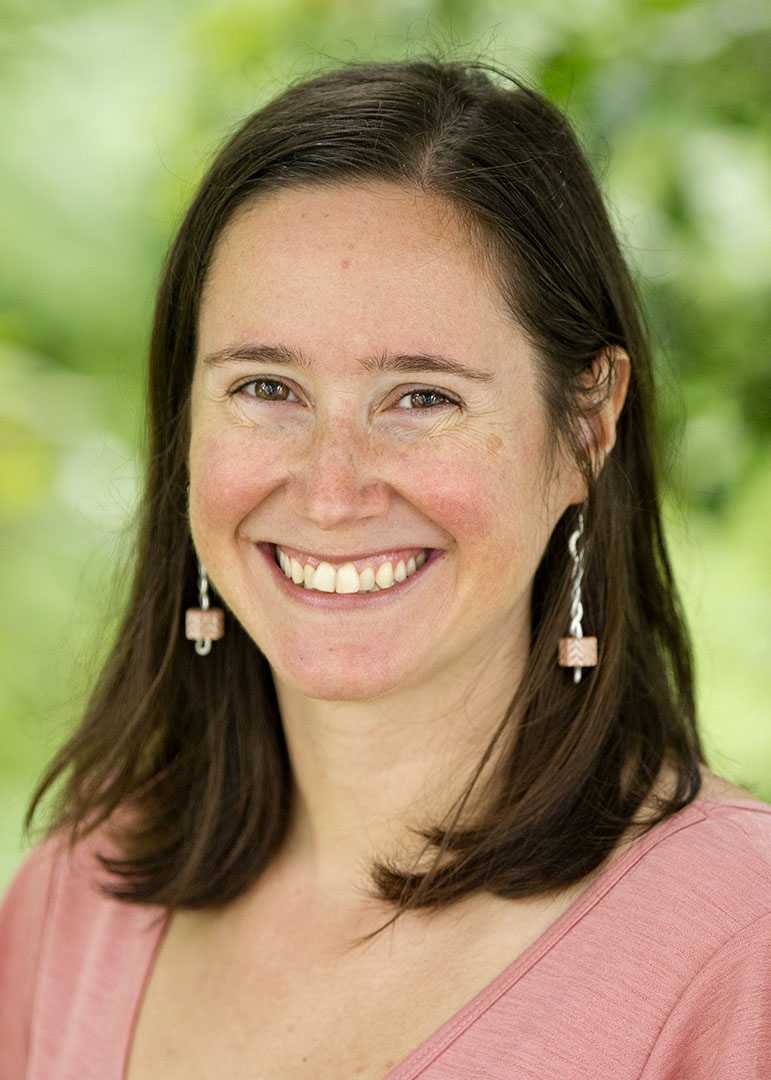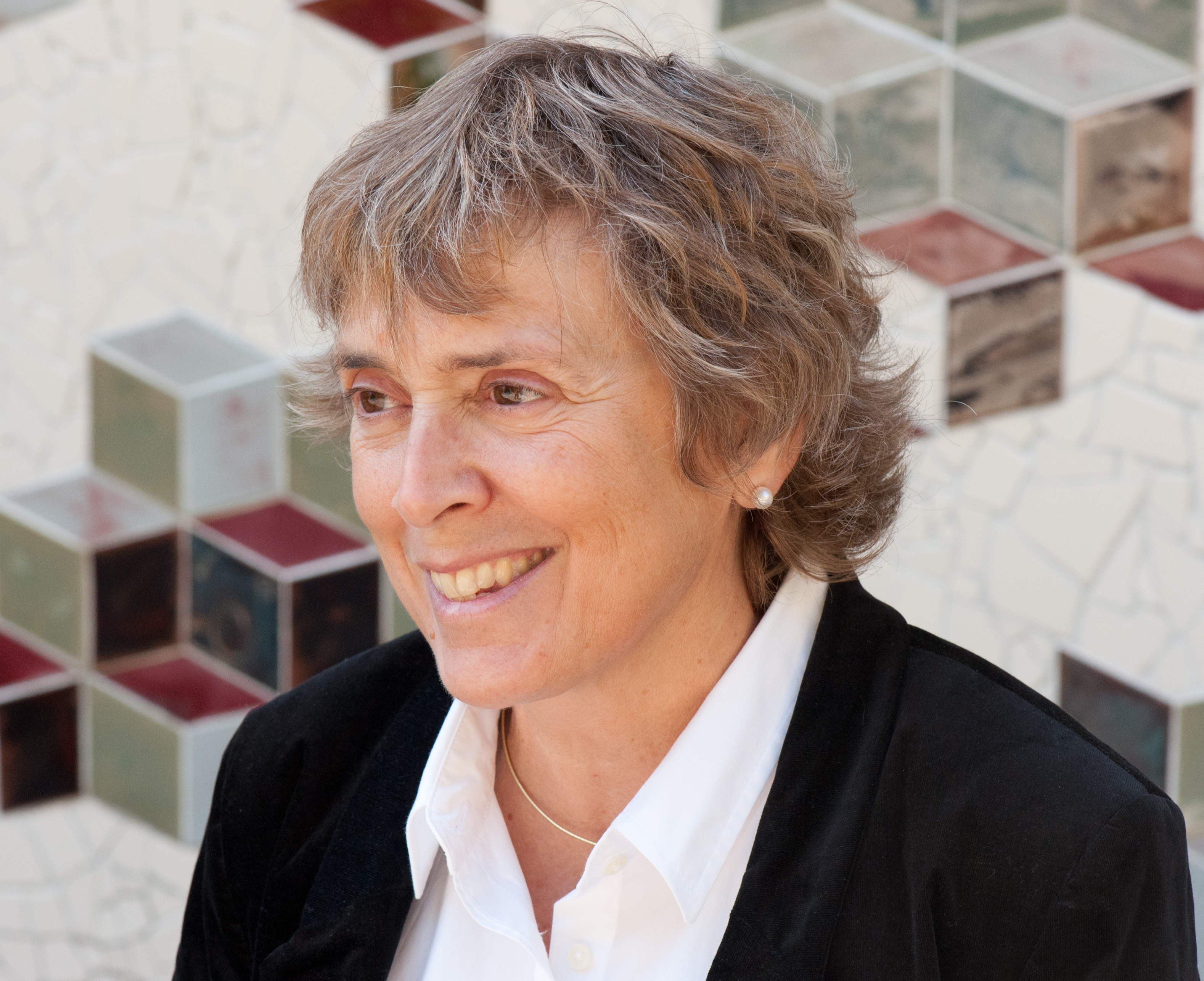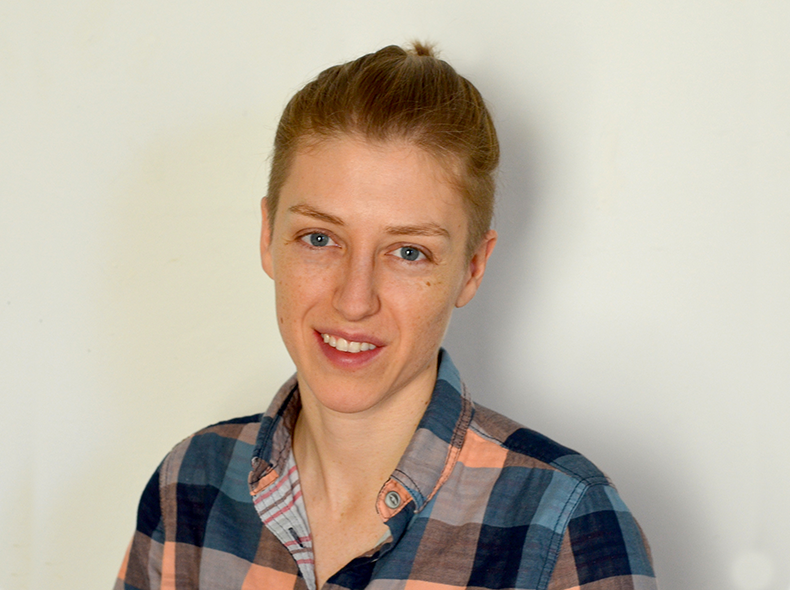Past Members of the Equity, Diversity and Inclusion Advisory Board
Adriana Salerno (Bates College) - Number Theory with Geometry, Physics, and Cryptography
Helene Barcelo (Mathematical Sciences Research Institute) - Algebraic and Topological Combinatorics — specifically, Combinatorial Representation Theory and Homotopy Theories in relation to Subspace Arrangements
Anthony Bonato (Ryerson University) - Graph theory, Network Science, Discrete Mathematics
Nira Chamberlain (Institute of Mathematics and its Application - United Kingdom) - Developing novel mathematical modelling algorithms for industry
Deirdre Haskell (McMaster University) - Model Theoretic Algebra
Nalini Joshi (University of Sydney) - Non-linear Differential and Difference Equations
Marta Mazzocco (University of Birmingham) -
Luis Montejano (UNAM) - Geometric and Algebraic Topology, Combinatorics, Geometry and Convexity
David Pike (Memorial University of Newfoundland) - Combinatorial Design Theory, Graph Theory, and Combinatorial Computing
Emily Riehl (Johns Hopkins University) - Higher Category Theory, Abstract Homotopy Theory, Homotopy Type Theory
Allan Willms (Bates College) - Number Theory with Geometry, Physics, and Cryptography
Ulrica Wilson (University of Guelph) - Mathematical Biology, Dynamical Systems, Bifurcation Theory, Scientific Computing, and Climate Change Modelling.
Kate Stange (University of Colorado Boulder) - Cryptography and Number Theory, including Elliptic Curves, Lattice- and Isogeny-based Cryptography, Apollonian Circle Packings, Ideal Class Groups, Diophantine Approximation, and others
Bio Sketches
Adriana Salerno (Bates College)

Adriana Salerno is originally from Caracas, Venezuela, where she received her undergraduate degree in mathematics from the Universidad Simon Bolivar in 2001. She then went on to earn her PhD at the University of Texas. While completing her doctorate in mathematics, Salerno was also selected as the AMS-AAAS Mass Media Fellow in the summer of 2007; as such, she wrote articles for the Voice of America. Salerno’s main research area is Number Theory, in particular the intersections of number theory with geometry, physics, and cryptography. She is also very interested in the communication and teaching of mathematics to create a more inclusive and equitable STEM workforce. She is an alumi of the Linton-Poodry SACNAS Summer Leadership Institute, and the SACNAS-HHMI Advanced Leadership Institute, and is committed to increasing the representation of minorities and women in the mathematical sciences. She is a proud member of AWM, SACNAS, MAA, and AMS. Salerno was visiting mathematician at the Mathematical Association of America’s headquarters in Washington, D.C., from September to November 2016.
Research Areas: Number Theory with Geometry, Physics, and Cryptography
EDI Statement
I believe that everyone is a math person, that learning mathematics should be equal parts joyful and challenging, that to learn mathematics one must do mathematics, that no one should have to leave their identity at the door, that mathematics is not neutral, and that we are all better at mathematics if we work together.
Helene Barcelo (Mathematical Sciences Research Institute)

Hélène Barcelo (she/her/hers) is Deputy Director of the Mathematical Sciences Research Institute (MSRI) in Berkeley, California, where she has overseen all scientific activities since 2008. A native of Québec, Canada, Dr. Barcelo received her Ph.D. in Mathematics from the University of California, San Diego. After a three-year postdoctoral position at the University of Michigan, Ann Arbor, she joined the faculty of the School of Mathematical and Statistical Sciences at Arizona State University (ASU). She is now a Professor Emerita of ASU and a visiting scholar at the University of California, Berkeley. Over her career, she has supervised numerous graduate students and postdoctoral fellows and held visiting positions at universities and research institutes across the globe.
Dr. Barcelo has published many articles in mathematics as well as adjacent disciplines such as game theory and social choice. For several years, Dr. Barcelo was the Editor-in-Chief of the Journal of Combinatorial Theory, Series A, and is currently a member of its advisory board. She has also served on the Executive Committee of the International Conference in Formal Power Series and Algebraic Combinatorics. In 2018, Dr. Barcelo was selected as a Fellow of the American Mathematical Society (AMS), and in 2019 she became a Fellow of the Association for Women in Mathematics. She recently completed a term on the Editorial Boards Committee of the AMS, after having served on its Executive Committee from 2013 to 2017. She is also currently on the Advisory Board of Matrix, the Australian International Mathematical Research Institute in Melbourne, Australia, and an active member of the Board on Mathematical Sciences and Analytics of the National Academies of Sciences, Engineering and Medicine.
Research Interests: Algebraic and topological combinatorics — specifically, Combinatorial Representation Theory and Homotopy Theories in relation to Subspace Arrangements
EDI Statement
Equity, diversity, and inclusion (EDI) have been issues of deep concern to me for decades. As I awakened to the impact of systemic inequities on the field of mathematical sciences, I have made a concerted effort to ensure that EDI is woven into the fabric of my professional practice and that of the institutions where I serve. In my current role, I have endeavored to implement a culture of inclusivity and to eliminate bias and discrimination at every level of the institution from the Building Manager to the Chair of the Board of Trustees. EDI are complex issues requiring multi-faceted solutions which I hope to explore as a member of the EDI Board of BIRS.
Anthony Bonato (Ryerson University)

Anthony Bonato’s research is in Graph Theory and Network Science. He has authored over 130 publications with 90 co-authors. His books A Course on the Web Graph, The Game of Cops and Robbers on Graphs, and Limitless Minds were published by the American Mathematical Society, and Graph Searching Games and Probabilistic Methods was published by CRC Press. Bonato is currently full Professor in the Department of Mathematics at Ryerson University, Editor-in-Chief of the journal Internet Mathematics, and editor of the journal Contributions to Discrete Mathematics. In 2017, 2011 and 2009, he was awarded Ryerson Faculty Research Awards for excellence in research. He has delivered over 30 invited addresses at international conferences in North America, Australia, Europe, China, and India. Bonato has supervised 40 postdoctoral fellows and graduate students. In 2019 and 2013, he was awarded the YSGS Award for Outstanding Contribution to Graduate Education. He's taught undergraduate and graduate courses at Ryerson, Dalhousie, Laurier, Mount Allison, Waterloo, the National University of Ireland, and the African Institute for Mathematical Sciences in Cameroon. He served as Chair of the Department of Mathematics at Ryerson 2010-2013 and Associate Dean in the School of Graduate Studies from 2013- 2017. From 2014-2019, Bonato served on the NSERC Discovery Mathematics and Statistics Evaluation Group, and was the Chair for the Pure Mathematics section. He serves on the NSERC-Mathematical and Statistical Liaison Committee and the CMS Research Committee.
Research interests: Graph theory, network science, discrete mathematics
EDI Statement
I am committed to making mathematics and STEM more inclusive. As a gay man, I recognize the challenges faced by underrepresented members of the mathematical sciences community, especially those who are BIPOC or LGBTQ+. Positioning equity, diversity, and inclusion into the DNA of academic institutions such as BIRS is an essential step forward.
Nira Chamberlain (Institute of Mathematics and its Application - United Kingdom)

Dr Nira Chamberlain PhD HonDSc is the President of the Institute of Mathematics and its Application (United Kingdom) and is a Visiting Fellow of Loughborough University Mathematical Sciences Department. In 2019 the Inclusive Tech Alliance named Nira as one of the Top 100 Most Influential Black, Asian and Minority Ethnic leaders in the UK’s Tech.
Nira a professional mathematical modeller, is also listed by the PowerList as the Top 100 Most Influential Black Person in the UK for three years running (2018-2020). Other awards include; an Honorary Doctorate in Science from the University of Greenwich for his unique and inspirational contribution to the field of mathematics. In 2018, Nira was the Winner of the Big Internet Math Off title – World’s Most Interesting Mathematician, which was an invited international mathematical communication tournament and voted for by the general public.
Dr Nira Chamberlain is also in listed by the Science Council as ‘one of the UK’s top 100 Scientist’ and in 2015 joined the elite list of distinguish mathematicians who featured in the UK biographical reference book Who’s Who. As well as this Nira Chamberlain is one of the few British Mathematicians to feature in the Encyclopedia of Mathematics & Society. The encyclopedia highlights two of Nira’s mathematical models and their impact on the field of naval engineering.
Nira, who currently works for SNC-Lavalin Atkins as a Principal Consultant, has over 25 years of experience at writing mathematical models/simulation algorithms that solve complex industrial problems. Nira Chamberlain developed mathematical solutions within industries such as the defence, aerospace, automotive, retail and energy sectors. This has included periods in France, the Netherlands, Germany and Israel. During his career Nira has been an invited to speak at several prestigious events such as the New Scientist’s Live, The Royal Society -Destination STEMM, Oxford University – Reddick Lecture, and at King College London – The Maxwell Lecture to name a few. Popular talks include; “Saving Aston Villa (UK Premier League Soccer club)”, “The Black Heroes of Mathematics” and finally, “The Mathematics that can stop an AI apocalypse!”
Research Areas: Developing novel mathematical modelling algorithms for industry
The Gambler’s Ruin Problem
The Black Heroes of Mathematics
EDI Statement
- Believe and act upon the statement that talent is uniformly distributed
- Champion and mentor a STEM student who does not look like, sound like or has the same values as you.
- Collaborate with STEM professionals who are outside your comfort group
- Recognise that Diversity increases a group’s creativity potential
Deirdre Haskell (McMaster University)
Nalini Joshi (University of Sydney)
Kathryn Leonard (Occidental College)
Marta Mazzocco (University of Birmingham)
Luis Montejano (UNAM)
Luis Montejano is Professor at the National University of México, Campus-Juriquilla and was Head of the Institute of Mathematics of the same university, 1994-1998. He received his Ph.D. from Utah University in 1979 and was Member of the Institute of Advanced Studies, Princeton, N.J., E.U.A., 1980-1981. He received the Alexander von Humboldt Scholarship at the University of Heidelberg 1989-1990 and also received the Prize of the Russian Academy of Science, Steklov Institute, Topology, 2001. His research is related with applications of algebraic topology to discrete and convex geometry.
David Pike (Memorial University of Newfoundland)

David Pike received a BMath degree in 1992 from the University of Waterloo and a PhD in 1996 from Auburn University. In 1998 he joined the faculty at Memorial University of Newfoundland where he is currently a University Research Professor in the Department of Mathematics and Statistics (with a cross-appointment to the Department of Computer Science). His research involves combinatorial design theory and graph theory. Recent work has been on such topics as colourings of combinatorial designs and graph decompositions, configuration orderings, as well as graph-based games.
He was awarded the Hall Medal of the Institute of Combinatorics and its Applications in 2007. He has served on NSERC panels for grants and scholarships and was Vice-President (Atlantic) of the Canadian Mathematical Society (2015-2017). Currently he is on editorial boards for the Australasian Journal of Combinatorics and the Journal of Combinatorial Designs. Since 2016 he has been a Vice-President of the Institute of Combinatorics and its Applications. In 2021 he was elected as President-Elect of the Canadian Mathematical Society.
Research Areas: Combinatorial Design Theory, Graph Theory, and Combinatorial Computing
EDI Statement
I respect that people with different backgrounds and lived experiences have valuable opinions and contributions to make. I correspondingly embrace EDI principles and initiatives that counter discrimination and seek to ensure that the full spectrum of society is able to participate at all levels. To borrow and extend a phrase from sport that sums up my position and which has personal significance: "If you can play, you can play". And for those who don't immediately grasp this reference, I am a gay man (and I curl). My preferred personal pronouns are he/him/his.
Emily Riehl (Johns Hopkins University)

Dr. Emily Riehl (she/her/hers) is an associate professor of mathematics at Johns Hopkins University, working on higher category theory, abstract homotopy theory, and homotopy type theory. Dr. Riehl was an undergraduate at Harvard University, completed Part III of the Maths Tripos at Cambridge, earned her Ph.D. at the University of Chicago, and was a Benjamin Pierce and NSF postdoctoral fellow at Harvard University. She has published over twenty papers and written two books: Categorical Homotopy Theory (Cambridge 2014) and Category Theory in Context (Dover 2016), both of which are freely available online. She has been awarded an NSF grant and a CAREER award to support her work and has been recognized for excellence in teaching at both Johns Hopkins and at Harvard. She is currently advising four PhD students and mentoring one postdoctoral fellow, and was the lead organizer for a semester program at the Mathematical Sciences Research Institute (MSRI) on Higher Categories and Categorification, which took place in Spring 2020. A research monograph that reimagines the foundations of infinite-dimensional category theory, Elements of ∞-Category Theory, co-authored with Dominic Verity, will appear sometime in 2021.
In addition to her research, Dr. Riehl is active in promoting access to the world of mathematics. She has given interviews for the Association for Women in Mathematics, the radio program Science Friday, and the podcast My Favorite Theorem, and has been featured in the Girls’ Angle Bulletin. She has given countless talks and lectures, including at the Women in Topology workshop at MSRI and the Women in Math and Statistics Conference hosted by Gender Inclusivity in Mathematics at Harvard. She is also a co-founder of Spectra: the Association for LGBT Mathematicians and has presented on mathematical proof and queer epistemology in the Women, Gender, and Sexuality Graduate Colloquium and Lecture Series at Johns Hopkins. She has also conducted an interview of fellow-spectra board member Mike Hill “On Performing Queerness in Mathematics” for a guest post of the inclusion/exclusion blog of the American Mathematical Society.
Research Areas: Higher Category Theory, Abstract Homotopy Theory, Homotopy Type Theory
EDI Statement
It's a dangerous myth that mathematics functions as a meritocracy. More often it's the case that those of us who have been blessed with a high degree of professional success reinforce structures that are designed to help those students who are most like ourselves advance through the academic pipeline.
I was very lucky to have discovered my love for mathematics early and to have mostly felt at home among my mathematically-inclined peers, but not everyone feels like they belong in the math department common room. It’s a problem if an instructor uses language that suggests that certain arguments are trivial or that this is something that everyone knew from the cradle. These tropes are very alienating to people who, for one reason or other, did not learn about modular arithmetic in kindergarten. We have to figure out ways to be allies and mentors for aspiring mathematicians who are not having the same experiences that we did.
Allan Willms (University of Guelph)
Ulrica Wilson (Brown University)
Kate Stange (University of Colorado Boulder)
Katherine E. Stange is an Associate Professor at the University of Colorado Boulder. She earned her Ph.D. with Joseph H. Silverman at Brown University in 2008, on the topic of elliptic curves. She has held NSF and PIMS postdoctoral positions at Harvard University, Simon Fraser University, and Stanford University. In 2021-2022, she was a Simons Fellow in Mathematics. She was elected to the 2021 class of Fellows of the Association for Women in Mathematics for her service. Her research interests span cryptography and number theory, including elliptic curves, lattice- and isogeny-based cryptography, Apollonian circle packings, ideal class groups, Diophantine approximation, and others. Her research has a computational and visual flavour. She is actively involved in service to the communities of Women in Number Theory and Illustrating Mathematics, as well as outreach activities. She has co-organized or attended many BIRS events, especially in the Women in Numbers series of research conferences.






